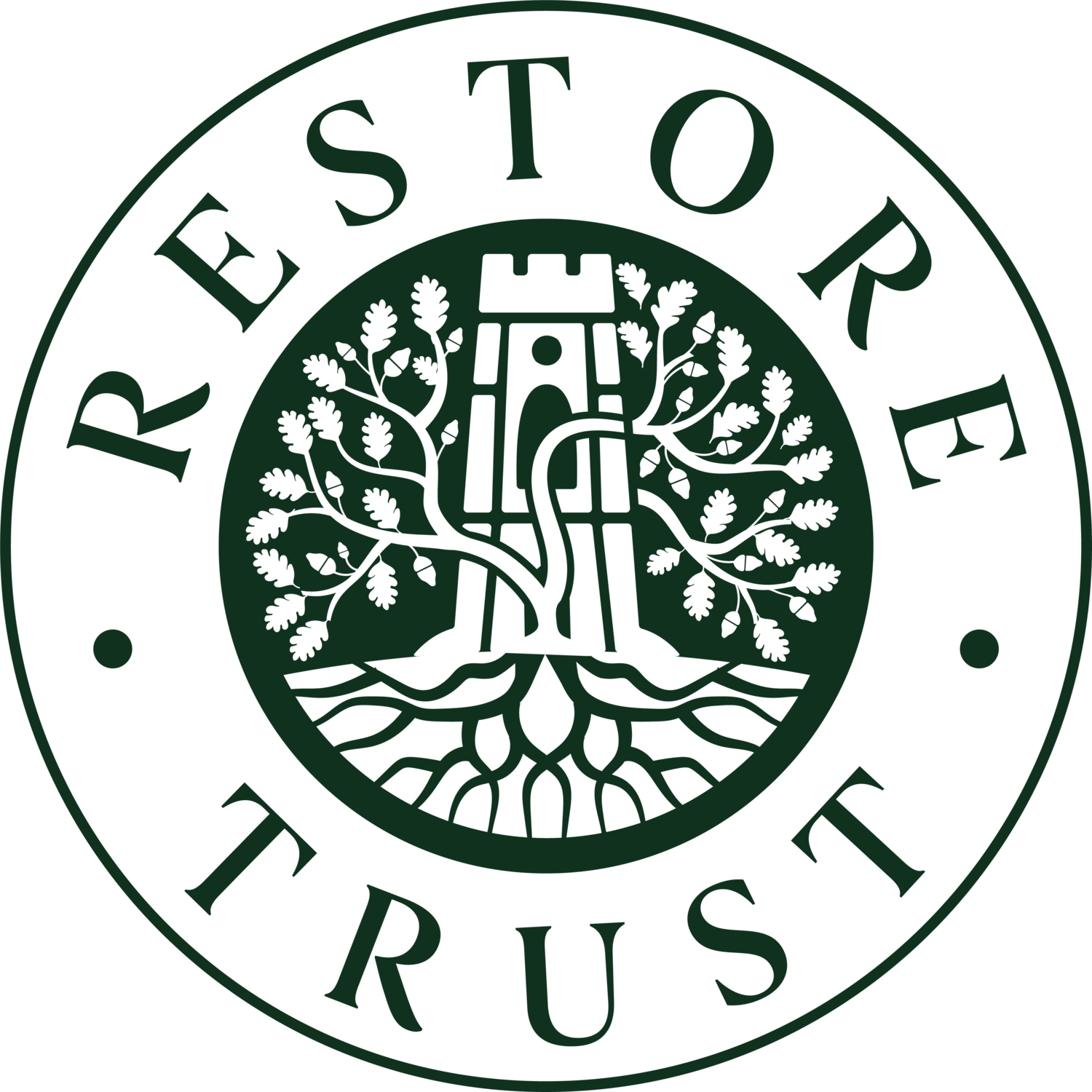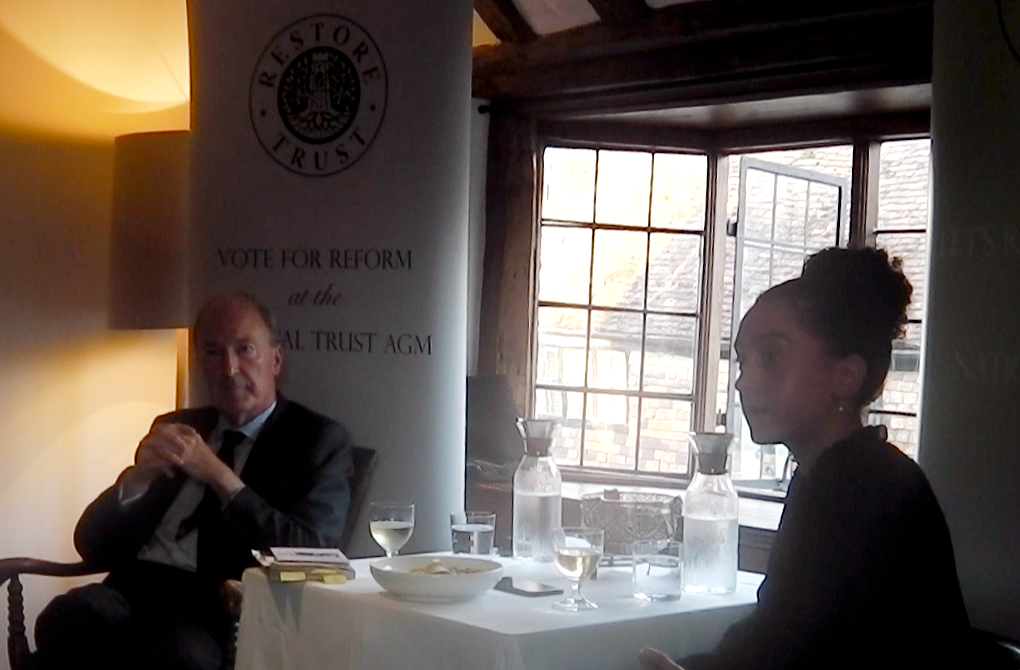In conversation with Lord Moore at The Star, Alfriston
On the evening of Wednesday 14th September, Restore Trust held a talk in the charming setting of The Star in Alfriston, East Sussex. The guest speaker for the evening was Charles Moore (Lord Moore of Etchingham), who was the first journalist to break the news of Restore Trust’s founding last year and has played a key role in bringing National Trust issues to light in the media.
One major focus of the discussion was the National Trust’s use of anti-democratic tactics to quash attempts from members to effect reform. Talking about the issue of the Chairman’s discretionary proxy vote, Zewditu noted how last year two critical members’ resolutions—one on the treatment of volunteers and the other on the sacking of specialist curators—which would easily have passed, by around 18,000 votes each, were defeated because the Chair used a huge block of discretionary proxy votes to vote against them.
Moreover, as Lord Moore pointed out, the advent of this year’s AGM period has seen new underhand tactics introduced by the National Trust, including the so-called “Quick Voting” option (presented as Option 1 on the form) to approve all the National Trust’s recommended Council candidates and members’s resolutions in one go simply by ticking a box.
Lord Moore and Zewditu also discussed the shocking experience of one of Restore Trust’s candidates, Philip Gibbs, who was informed having submitted his candidate statement that this statement would be changed to water down his criticism of the National Trust’s voting procedure; even though Philip stood his ground, could it not be that other Council candidates had their statements watered down in the same way and did not think to fight back?
The way in which a large number of traditional specialist curators—experts on conservation, fabrics, paintings, architecture, gardens and so on—were made redundant by the National Trust during the pandemic was discussed, as was the way in which they have been sidelined more generally. Lord Moore said that, “I’ve had a lot of reports of people who are employed by the National Trust and come under quite a lot of pressure because they are more interested in those particular specialisms and they’re not very interested in the more political stuff and they get demoted or frozen out or they gradually get to feel that they don’t have much of a career there”.
Speaking about Clandon House, Lord Moore pointed out that it was strange for the National Trust not to spend the £66.3 million it received in insurance money on restoring Clandon, particularly given that the National Trust’s own guidebook celebrates restoration in modern times of other houses, with one example being Hinton Ampner (devastated by fire in 1960 and restored beautifully to its former glory). Why, Lord Moore asked, do they take a different attitude towards Clandon? He wondered what the National Trust might have decided if Hinton Ampner had burnt down today.
Lord Moore suggested that “stewardship is under strain” at the National Trust because it has stretched itself too widely and is focussing too much on money-making at the expense of carrying out its founding duty of preservation of land and houses, which he said has lapsed, with some houses being allowed to become derelict. Zewditu pointed out that, as the recently-published Annual Report shows, the National Trust has no money problem and indeed has significantly more in reserves than one might expect. Keeping so much in the bank account, she added, did not seem particularly justified given the state of some of its properties and the fact that several sites are partially closed to members and the public. She also said that for a charity with clear charitable objects like the National Trust, money should always be seen as a means to an end, not an end in itself. Lord Moore agreed, saying that the National Trust “has to get back to what it is really about”.
During the Q&A session, in which a broad range of topics—from farming to the treatment of donor families—were discussed, one attendee observed the similarity between the troubles faced by members of the National Trust and members of the MCC (Marylebone Cricket Club), in that there seems to be a disjunct between those at the top of the institutions—the executive and board—and the members and public below, who are often not consulted before even quite drastic changes take place. In the case of Lords, MCC has decreed that its Historic Fixtures (the Eton–Harrow and Varsity matches) are no longer to take place, and the membership (led by the Committee for the Reinstatement of the Historic Fixtures), who were not consulted before the decision was taken, have taken the unprecedented step of calling for an EGM (which will take place on 27th September) to force a vote on the issue. The attendee suggested that Restore Trust might call for such an EGM to be held on the Clandon House tragedy. Zewditu said that all options were being considered, but that in the meantime she would urge all National Trust members to make their voices heard at the upcoming AGM, by attending in person and asking the management about Clandon House directly, or even simply by voting for Restore Trust’s recommended Council candidates and reformative members’ resolutions to ensure that nothing like it would ever happen again.


